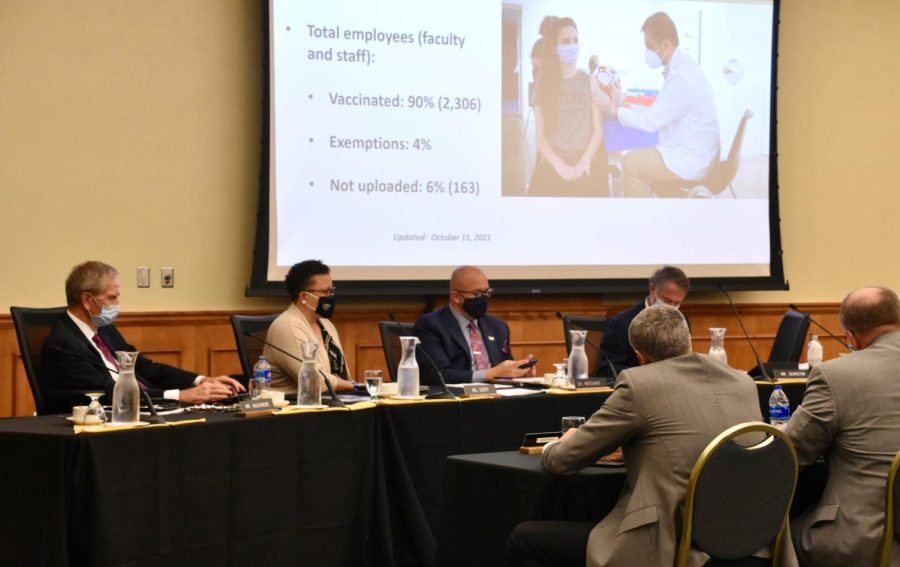BOT audit committee meeting: OU’s net position increases $71.6 million in fiscal year ‘21
The BOT met for an audit committee meeting on Monday, Oct. 11 before the formal session later that day. The primary purpose of the meeting was to review the draft financial statements for fiscal year 2021 (FY21).
On Monday, Oct. 11, 2021, prior to the Oakland University Board of Trustees (BOT) formal session later that afternoon, the BOT met in Banquet Room A of the Oakland Center for an audit committee meeting to review the draft financial statements for fiscal year 2021 (FY21). The financial standing of the university has improved — as Vice President for Finance and Administration and Treasurer to the BOT John Beaghan explained.
“The university’s net position increased by $71.6 million in FY21, primarily due to investment income of $50 million, gifts of nearly $8 million, additions to permanent endowments of $9 million, capital gifts and grants of $4 million, and an increase in state appropriations, which was a direct offset to a prior year appropriation decrease of $6 million,” Beaghan said. “These increases in net position were reduced primarily by a decrease in tuition revenue of $7 million. A decline in auxiliary activities revenue $9 million, primarily due to the pandemic, was largely offset by a reduction in auxiliary operating expenses.”
Beaghan listed other FY21 financial highlights before representatives Stephan Bondar and Amanda Coon from the BOT’s external auditor Plante Moran presented. Another highlight was the federal funding OU had received — the grants were to support students and offset the impact of costs and revenue losses during FY20 and FY21.
“The grants were primarily from Higher Education Emergency Relief Funds (HEERF) awarded by the U.S. Department of Education,” Beaghan said. “The university was allocated HEERF grants totaling $75.6 million with 33.6 million earmarked for direct student support. The remaining $42 million was granted to the university to defray expenses and lost revenues associated with the pandemic.”
To date, the university has distributed $28.9 million of these HEERF funds to its students. The remainder, according to Beaghan, will be distributed to students later this fall.
Out of the $42 million institutional portion of the relief funds, $11.2 million has been used for personal protective equipment, pandemic-related training, IT, air handling unit upgrades and enhanced campus cleaning protocols. The remaining $30.8 million will offset revenue losses during FY21 and FY22, which are primarily from tuition declines and auxiliary operations — the majority of which is housing, as well as Meadowbrook Hall and the Golf and Learning Center expenses.
The university’s endowment value is $149 million and during FY21, $4.6 million was spent from the endowment on scholarships.
In September 2019, OU issued $98 million in tax exempt bonds to fund renovations for Dodge Hall, South Foundation Hall, Varner Hall, Wilson Hall, an off-campus research facility, central heating infrastructure and other projects. As of June 30, 2021, $17.5 million of the bond proceeds have been spent on such renovations, all of which are “proceeding and upon budget,” Beaghan said.
As for the loss in revenue from student housing, the university still has a demand, but it is currently undersubscribed.
“We’re at about 2,000 students in the halls,” Senior Vice President for Student Affairs & Chief Diversity Officer Glenn McIntosh said. “We’ve budgeted officially around 60% [occupancy in student housing], so we’re still on target to reach that number, and we plan to recover next fall.”
The meeting adjourned after the BOT approved the draft financial statements. The BOT will next meet for a formal session on Dec. 13, 2021, 2:00 p.m. in Banquet Room A of the Oakland Center.









